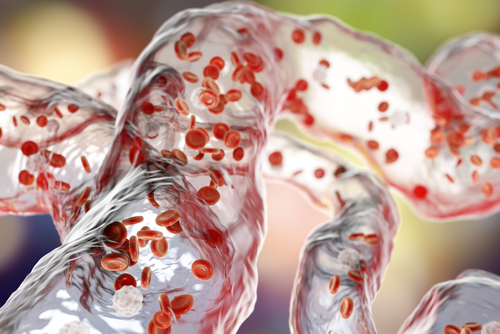To foster the development of tools to test new anti-fibrotic treatments in Crohn’s patients, the Leona M. and Harry B. Helmsley Charitable Trust has awarded $4.3 million to three medical centers to establish the Stenosis Therapy and Anti-Fibrotic Research (STAR) consortium.
The award goes to the Mayo Clinic, Robarts Clinical Trials, and the Cleveland Clinic, which will coordinate the effort. Physicians co-leading the consortium are the Cleveland Clinic’s Florian Rieder, the Mayo Clinic’s Joel Fletcher, and Brian Feagan of Robarts Clinical Trials.
The consortium plans to leverage each center’s know-how to create and test a patient-reported outcome tool that assesses the effects of Crohn’s disease, a common form of inflammatory bowel disease (IBD). Researchers also plan to develop an imaging system to measure the response of strictures to anti-fibrotic treatments.
In IBD, and particularly Crohn’s, swelling and scar tissue formation often cause obstruction. This results in bowel wall thickening and narrowed intestinal passage. Up to 40 percent of patients will ultimately develop the condition. Called fibrotic strictures, the narrowed areas can cause abdominal pain, vomiting, and bloating. There are no non-invasive ways to effectively prevent or manage such strictures, which are largely treated through surgery.
“Addressing the unmet medical needs of patients with Crohn’s disease is at the center of our program’s mission,” Garabet Yeretssian, director of the trust’s Crohn’s disease program, said in a press release.
“The STAR consortium represents a tremendous opportunity to create the tools necessary for advancing anti-fibrotic therapeutic clinical trials. Helmsley is proud to partner with the STAR consortium experts to develop and disseminate these tools to the greater Crohn’s disease clinical and research communities and benefit all patients.”
Fletcher said the therapies’ development could result in less pain and fewer infections, surgeries and hospitalizations.
Feagan said Robarts Clinical Trials is “proud to be an integral partner in a collaboration that brings together expertise in gastroenterology, radiology and clinical epidemiology to address a poorly studied clinical problem that affects many patients with Crohn’s disease.”
Headquartered in London, Ontario, Robarts is a global research organization that supplies clinical trial and central image management solutions to the biotechnology and pharmaceutical industries.
IBD is an idiopathic (no known cause) and debilitating immune reaction to one’s own intestinal microflora, triggered by genetic, environmental, and physiological factors. Roughly 1.3 percent of U.S. adults have the disorder, be it Crohn’s or ulcerative colitis.
The Helmsley Charitable Trust’s Crohn’s disease program brings together a global community in support of new ideas to improve the lives of patients while searching for a cure.
In related news, Pliant Therapeutics has begun a multi-year scientific partnership with the Cleveland Clinic to advance the discovery of therapeutic targets for gastrointestinal fibrosis.

